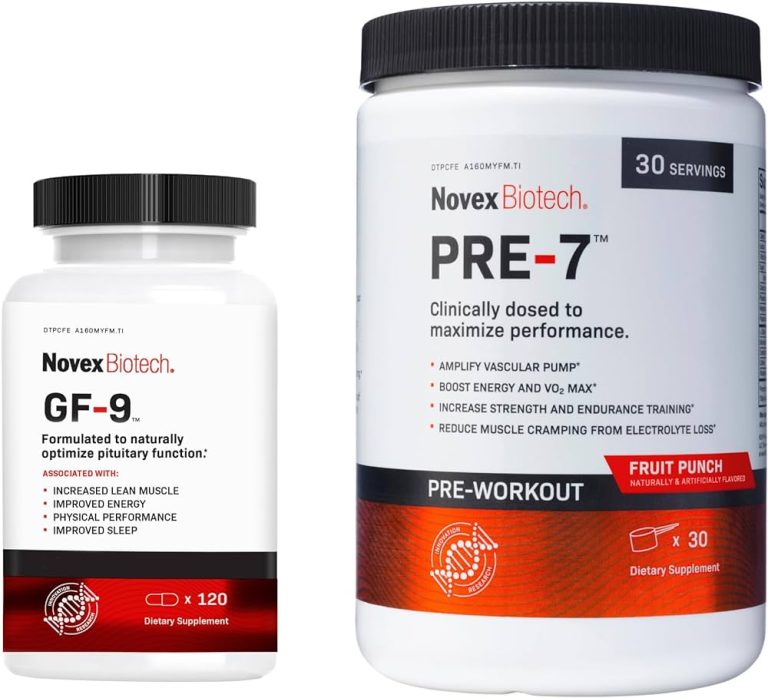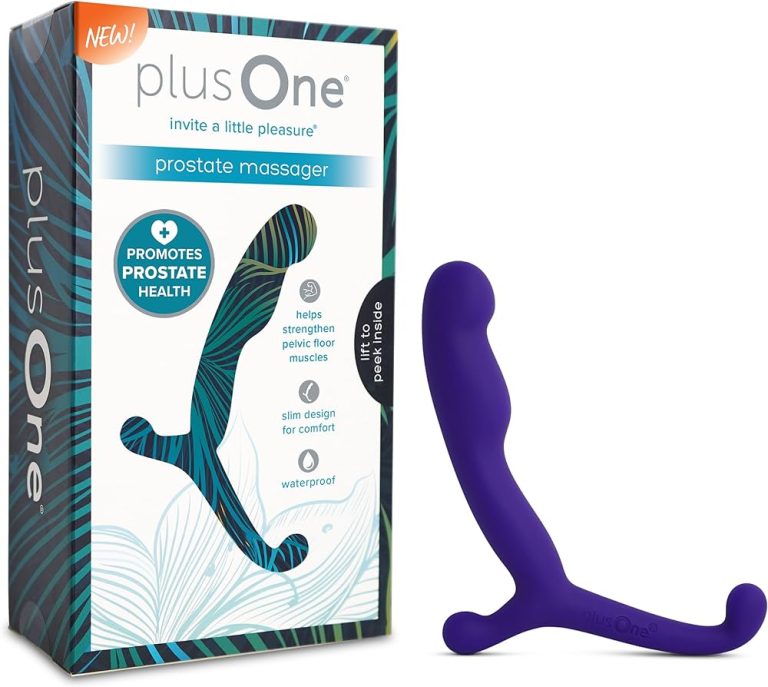9 Best Self Tips: Achieve Physical Health, Mental Well-being, and Emotional Intelligence
Everyone’s on a journey to become the best version of themselves, but where do you start? The concept of “9 best self” offers a roadmap to guide you through the process of self-improvement. By focusing on nine key areas of your life, you can unlock your full potential and achieve a balanced, fulfilling existence.
Imagine waking up each day feeling confident, motivated, and ready to tackle whatever comes your way. Whether it’s enhancing your physical health, boosting your mental well-being, or nurturing your relationships, the “9 best self” framework provides practical steps to help you grow. Dive into these nine essential areas and discover how small changes can lead to significant transformations.
Understanding Your Emotions
Grasping your emotions is crucial for personal growth and achieving your best self. Recognizing and managing your feelings helps you navigate life’s challenges more effectively.
Recognizing and Managing Feelings
Identifying emotions starts with paying attention to your bodily sensations, thoughts, and behaviors. Practice mindfulness to become aware of how you feel in different situations. Journaling daily helps track patterns and triggers. Use this insight to anticipate and manage emotions proactively. For instance, if you notice anxiety before meetings, preparatory breathing exercises can help you stay calm.
The Impact of Emotional Intelligence
Emotional intelligence (EQ) refers to the ability to understand and manage your own emotions and those of others. High EQ leads to better relationships, improved communication, and enhanced decision-making. Develop your EQ by practicing empathy—actively listening to others and validating their feelings. Also, reflect on your emotional responses and seek feedback from trusted friends or mentors. This continual improvement process boosts your overall well-being and effectiveness.
Setting Personal Goals
Setting personal goals is key to achieving your best self. It provides direction and helps you focus on what’s important.
Importance of Goal Setting
Clarifies Your Vision: Goal setting sharpens your focus and helps clarify your vision for the future. It drives you toward your objectives and establishes a roadmap for success.
Boosts Motivation: Having specific goals boosts motivation. It creates a sense of purpose and pushes you to take actionable steps toward achieving your dreams.
Enhances Time Management: Goals improve your time management skills. Prioritizing tasks and managing time effectively become easier when you have clear targets.
Builds Self-Confidence: Setting and achieving goals builds self-confidence. Each accomplishment strengthens your belief in your abilities and encourages you to set even higher goals.
Examples of Achievable Personal Goals
Exercise Regularly: Commit to exercising three times a week. Consistent physical activity enhances your physical health and boosts mental well-being.
Read More Books: Set a goal to read 12 books in a year. Reading enriches your knowledge and provides various perspectives on life.
Learn a New Skill: Plan to learn a new skill, like coding or a new language, within six months. Acquiring new skills keeps your mind sharp and expands career opportunities.
Save Money: Aim to save 20% of your monthly income. Financial goals ensure stability and provide security for future investments.
Build Stronger Relationships: Spend more quality time with family and friends. Nurturing relationships improves your emotional well-being and supports a balanced life.
Maintain a Positive Mindset: Practice gratitude and positive thinking daily. A positive mindset enhances your overall satisfaction and resilience.
Cultivating Healthy Relationships
Relationships significantly impact your overall well-being and personal growth. Enhancing your connections with others can lead to a more fulfilling life.
Building Strong Connections
Creating solid relationships demands time, effort, and commitment. Prioritize quality over quantity by investing in fewer yet meaningful connections. Engage actively with friends and family through shared activities and regular check-ins. Demonstrate genuine interest in their lives by asking open-ended questions and listening actively. Show empathy and support during challenging times, building trust and deepening bonds.
The Role of Communication in Relationships
Effective communication is the cornerstone of healthy relationships. Practice open and honest dialogue without judgment. Express your feelings and needs clearly to avoid misunderstandings. Adopt active listening by focusing on the speaker and acknowledging their points. Use non-verbal cues like eye contact and body language to reinforce verbal interactions. Regularly address conflicts constructively by focusing on solutions rather than assigning blame.
By focusing on these areas, you can create and maintain stronger, healthier relationships that contribute positively to your journey of self-improvement.
Practicing Self-Care
Taking care of yourself is essential for overall well-being. Here are some tips for maintaining both physical and mental health.
Importance of Physical and Mental Health
Understanding the impact of physical and mental health is crucial. Good physical health reduces the risk of chronic illnesses, such as diabetes and heart disease. Regular exercise, a balanced diet, and adequate sleep enhance your body’s function.
Meanwhile, mental health affects your thoughts, emotions, and behaviors. Poor mental health can lead to stress, anxiety, and depression. Practicing mindfulness, seeking therapy, and maintaining social connections are vital for mental well-being. Remember, both aspects are interconnected; improving one often benefits the other.
Self-Care Ideas that Promote Well-being
Incorporating self-care practices into your routine can significantly boost your well-being. Here are some ideas:
- Exercise Regularly: Aim for at least 150 minutes of moderate aerobic activity or 75 minutes of vigorous activity per week, as recommended by the CDC.
- Eat Nutritious Foods: Choose whole grains, lean proteins, and a variety of fruits and vegetables. Avoid processed foods and excess sugar.
- Maintain a Sleep Schedule: Aim for 7-9 hours of sleep each night. Consistent sleep improves mood, concentration, and cognitive function.
- Practice Mindfulness and Meditation: Spend 10-20 minutes daily on activities like meditation, deep breathing, or yoga to reduce stress and improve mental clarity.
- Set Boundaries: Learn to say no and prioritize your time. This helps manage stress and prevents burnout.
- Build a Support System: Cultivate relationships with family, friends, or support groups. Emotional support is vital for resilience and mental health.
- Engage in Hobbies: Spend time on activities you enjoy, whether it’s reading, gardening, or painting. Hobbies provide relaxation and joy.
- Regular Health Check-ups: Schedule annual check-ups and screenings to monitor your health and catch potential issues early.
- Limit Screen Time: Reduce the time spent on devices to avoid digital fatigue. Designate tech-free times to focus on offline activities.
By making these self-care practices a part of your routine, you’ll enhance your physical and mental health, leading to a more balanced and fulfilling life.
Leveraging Your Strengths
Knowing your strengths and using them effectively can significantly improve various aspects of your life. Here’s how you can identify and leverage your strengths for better well-being and success.
Identifying Personal Strengths
Reflect on past achievements. Think about moments when you felt accomplished or proud. These memories can highlight your natural abilities and skills.
Ask for feedback. Reach out to friends, family, and colleagues for their insights. They can often identify strengths you might overlook.
Use strength-finding tools. Consider using assessments like the CliftonStrengths or VIA Character Strengths survey. These tools give detailed insights and actionable feedback.
Using Strengths to Enhance Your Life
Apply strengths to daily tasks. Use your identified strengths to optimize daily routines and work more efficiently. For example, if you’re a great communicator, focus on roles involving collaboration and networking.
Set goals that align with strengths. Create personal and professional goals that leverage your strengths. This alignment makes goals more achievable and motivating.
Help others with your strengths. Share your abilities to assist friends or team members. By doing so, you can enhance relationships and create a supportive environment.
Overcoming Challenges
Facing challenges is an inevitable part of personal growth. Unlocking your best self involves navigating these obstacles with resilience and strategic thinking.
Strategies for Problem Solving
Identify the Issue. Start by clearly defining the problem. Understanding the root cause is essential to finding an effective solution.
Brainstorm Solutions. Gather potential solutions without judging them. Use creative thinking to explore all possibilities.
Evaluate Options. Assess each solution for feasibility and potential impact. Prioritize those that offer the best outcomes.
Take Action. Implement the chosen solution with confidence. Break down the actions into manageable steps to stay organized.
Review and Adjust. Monitor the results and make adjustments if necessary. Flexibility in your approach ensures continuous improvement.
Learning from Failures and Setbacks
Embrace Failure. Recognize that failure is a stepping stone to success. Shifting your perspective on failure can open new learning opportunities.
Analyze the Experience. Reflect on what went wrong and why. Understanding these aspects will help you avoid similar pitfalls in the future.
Apply Lessons Learned. Use insights gained from setbacks to refine your strategies. Integrate these lessons into your ongoing efforts.
Stay Persistent. Maintain your commitment despite setbacks. Persistence is crucial for overcoming obstacles and achieving long-term success.
Celebrate Progress. Acknowledge small victories along the way. Celebrating progress boosts your morale and keeps you motivated.
Exploring New Skills
Trying new things can significantly boost your personal growth and broaden your horizons. Let’s dive into the benefits of lifelong learning and explore ideas for skill development.
Benefits of Lifelong Learning
Enhances cognitive function. Continuous learning keeps your mind sharp and improves memory.
Increases adaptability. Acquiring new skills helps you navigate changes in your career and personal life.
Expands opportunities. Learning new abilities often opens doors to new job prospects and hobbies.
Boosts confidence. Mastering new skills enhances self-esteem and provides a sense of accomplishment.
Promotes social connections. Engaging in educational activities introduces you to like-minded individuals.
Ideas for Skill Development
Take online courses. Platforms like Coursera and Udemy offer a wide range of courses on various subjects.
Join workshops. Community centers and professional organizations frequently host workshops on skills like cooking or coding.
Read books. Reading is an excellent way to acquire knowledge on any topic that interests you.
Learn a language. Apps like Duolingo and Rosetta Stone make language learning accessible and fun.
Practice a hobby. Dedicate time to hobbies like painting, gardening, or playing a musical instrument.
Volunteer. Many volunteer opportunities provide hands-on experience and valuable skills.
Seek mentorship. Find a mentor in your field to provide guidance and support.
Watch tutorials. YouTube and other video platforms offer tutorials on countless skills, from carpentry to graphic design.
Attend networking events. Connecting with industry professionals can inspire you to learn new skills and expand your knowledge.
Reflecting on Achievements
Taking the time to reflect on your achievements is crucial for maintaining motivation and acknowledging progress. It helps you appreciate your journey and fosters a positive mindset.
Recognizing Personal Growth
Identify changes and improvements. Reflect on the skills you’ve acquired, the knowledge you’ve gained, and the challenges you’ve overcome. Keeping a journal can be a helpful tool for this. Regularly reviewing past entries will show how far you’ve come, reminding you of your ability to grow and adapt.
Celebrating Successes Big and Small
Acknowledge all accomplishments. Whether it’s completing a major project, sticking to a new habit, or overcoming a personal fear, all successes deserve recognition. Create a list of these achievements, and treat yourself with small rewards like a favorite meal or a relaxing activity. This practice of celebration will reinforce positive behaviors and boost your self-esteem.
Conclusion
Embracing the “9 best self” approach can transform your life in meaningful ways. By focusing on physical health, mental well-being, and emotional intelligence, you set the stage for continuous personal growth. Remember to celebrate your achievements and stay resilient in the face of challenges. Lifelong learning and a strong support system are key to sustaining your progress. Keep pushing forward and you’ll find yourself becoming the best version of you.






